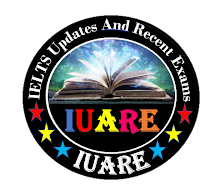Synonyms & Antonyms Words List For IELTS | IELTS Vocabulary PDF
Synonyms & Antonyms Words List For IELTS
The basic definition of a synonym is a word that has a meaning similar or identical to another word with which it is being compared. For example, a synonym for the word "big" is "huge". On the other hand, an antonym is when the second word is opposite to the first, for example, with “big” versus “small”.
However, in the IELTS test, synonyms and antonyms that appear on reading and listening tests are not always so obvious. For example, during a listening test, a speaker may use negatives to flip the meaning over a question or multiple choice question. These negative words can be using "not" like "can't", etc. Or with words like "never." You may even find that speakers use a longer discourse to portray this, for example, "I would not say this is what I would recommend."
Doing the Synonym and Antonym exercises daily will help you prepare well for the IELTS Writing section, expand your IELTS vocabulary, and improve your vocabulary skills. Let's set a time for you and start learning now. One important way to get a high score on the IELTS exam is to focus on synonyms and antonyms of difficult words so that you can better explain a given topic.
Antonyms are an integral part of the IELTS exam and these are words that have the opposite meaning for the particular word that is being given. Test takers who plan to go abroad to study or work must have a good command of vocabulary, the antonym is also part of the vocabulary, and you need to know the meaning of some of the difficult words that you mention when taking the exam.
Why do you need to use synonyms?
Some words should be replaced with synonyms, as they are imprecise and rather low-level. Examples: good, bad, big, small, and good. It's correct to say, "Fossil fuels are bad for the environment," but lacks the sophistication you'd expect to see in a higher-level response. Here we would prefer the word "harmful" or "damaging".
Context is important when using synonyms for words such as "important." While “essential” is synonymous, it is inappropriate to say, “Internet addiction is an important problem of our time. Instead, you can use it instead of “important” when you use the expression “It is important that the government deals with ABC .....” Or you can use “critical” or “vital”.
Sometimes you need synonyms to avoid repeating yourself. This is a common thing in writing about children. Keep using the word "children" becomes monotonous, but what alternatives can you use? Although a toddler and teenager are children, not all children are toddlers and teenagers, so you cannot use these words interchangeably. You can use "youth", "young", "minors" or "teenagers" instead. “Children” should always be avoided as it is informal.







Leave a Comment